Are you trying to decide between a fuse box and circuit breaker for your home’s electrical system? Many people struggle with this decision.
To help you, learn about the purpose, types, and installation requirements of each one. That way, you can make a better choice.
In this post, we will provide an overview of both fuse boxes and circuit breakers so that you have all the information necessary to choose what works best for your home’s electrical needs.
What Is a Circuit Breaker and How Does It Work?
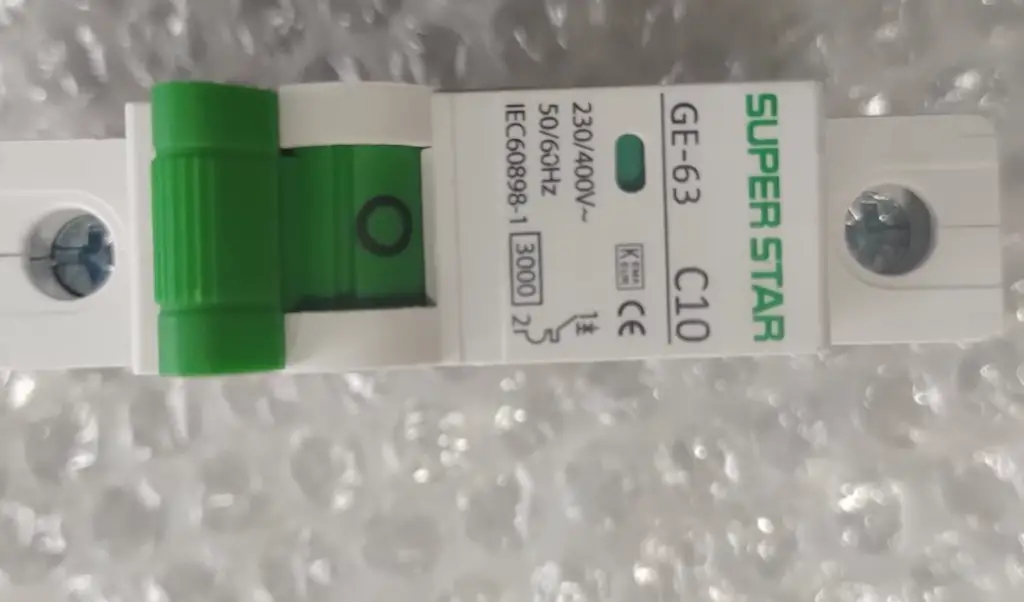
Circuit breakers are typically installed in the main panel. This is the box in your home where electricians have direct access to circuits throughout the house.
When too much electricity flows through a circuit, it trips the breaker and power shuts off. The breaker resets when you press its reset button or manually turn it off and on again. [1]
What Is the Fuse and How Does It Work?
It works like a circuit breaker, but instead of turning off power it melts and breaks the circuit. This helps protect against fires caused by too much electricity.
Fuses are put in a box with circuit breakers. When there is too much electricity, it melts the fuse. This breaks the circuit. To fix this, you must replace the old fuse with a new one.
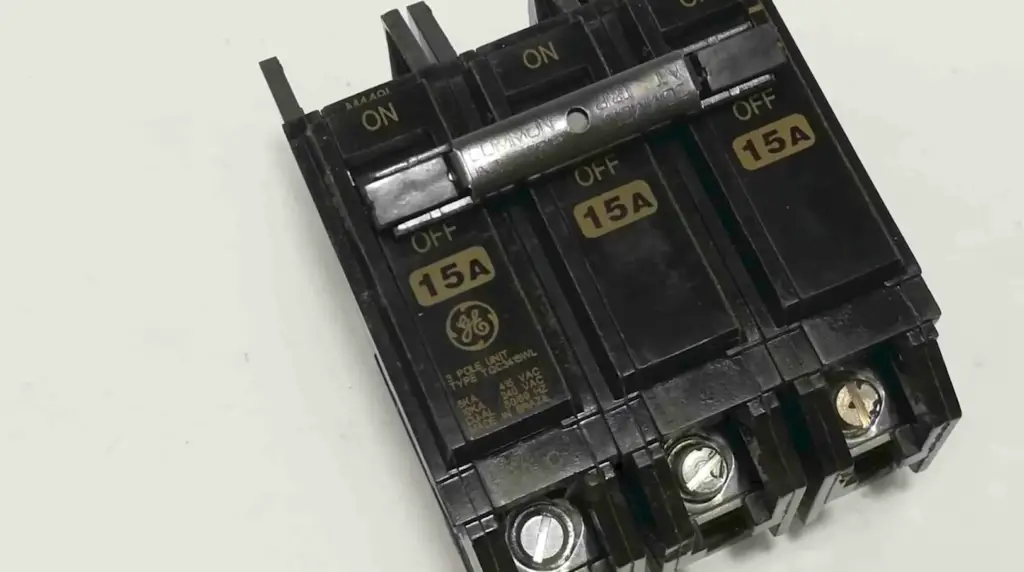
What’s the Difference Between a Circuit Breaker and Fuse?
The main difference between a circuit breaker and fuse is the way that they respond when too much electricity flows through.
A circuit breaker will turn off the power, while a fuse melts and breaks the circuit. Both are important safety devices for your home’s electrical system.
Another key difference is that you need to replace a fuse after it melts, while a circuit breaker can be reset. This means that you will need to purchase more fuses over time.
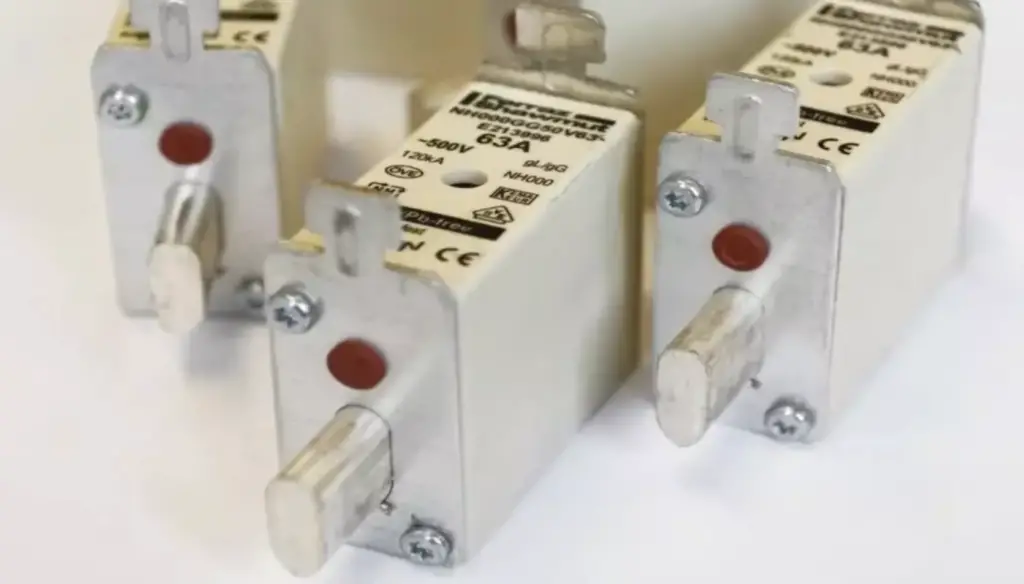
Fuse Pros and Cons
The main pro of a fuse is that it stops the flow of electricity before any damage can be done to your home. It also does not require any extra wiring or installation costs, as it works with existing circuits.
The main downside is that you need to replace fuses after they have melted, which can be time-consuming and costly over time.
Circuit Breaker Pros and Cons
The main pro of a circuit breaker is that it can be easily reset after tripping, meaning you don’t have to purchase new ones as often.
The main downside is that they require extra wiring for installation, which can add to the cost of the project.
Cost Considerations for Both
Fuse boxes and circuit breakers cost different amounts depending on size, brand and type.
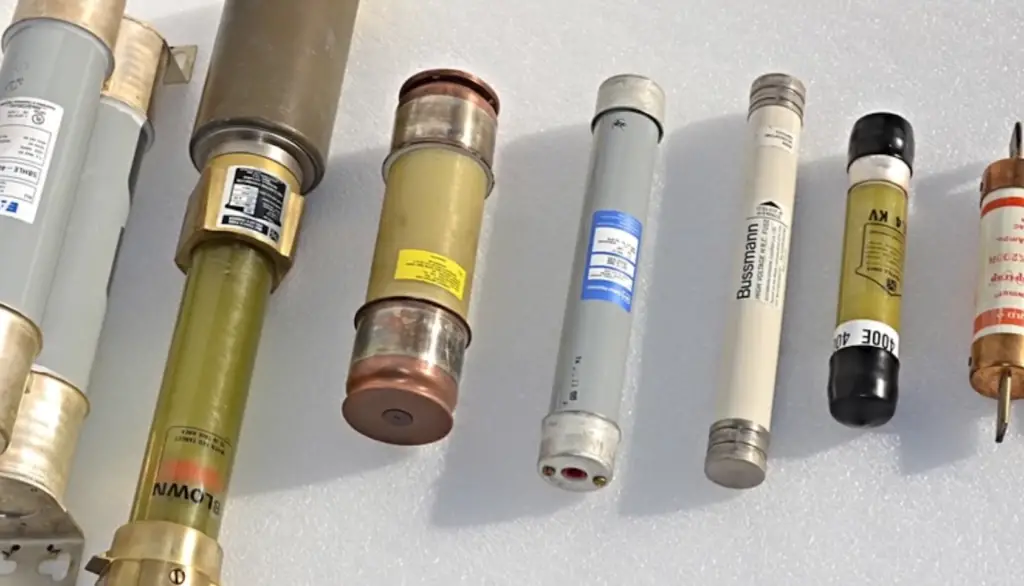
Normally, fuses are cheaper to buy but then you have to replace them when they burn out. Circuit breakers cost more to buy, but they don’t need replacing as often so can save money in the long run. [3]
What Is the Purpose of My Fuse Box or Circuit Breaker?
Both fuse boxes and circuit breakers are important safety devices for your home’s electrical system.
Fuse boxes protect against fires by melting when too much electricity is flowing through a circuit, while circuit breakers turn off the power when they sense too much electricity.
It’s important to choose the right one for your home’s needs so that you can keep your home and family safe.
Now that you know the difference between fuse boxes and circuit breakers, you can pick the best one for your home’s electricity. [2]
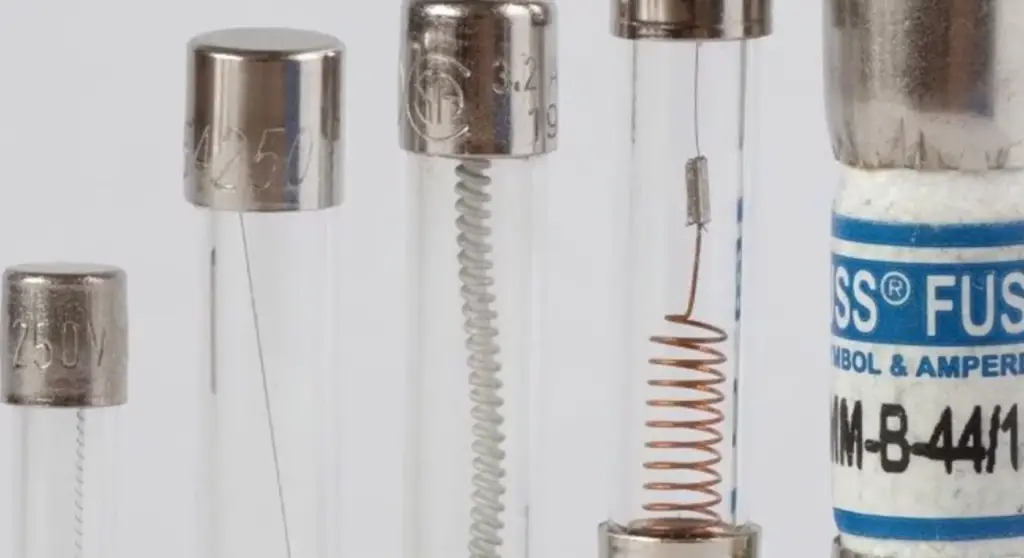
Should I Replace My Fuse Box with A Circuit Breaker?
You might want to change your old fuse box for a circuit breaker. It could be easier and cheaper, but it might also need more wiring or other changes. Ask an electrician what is the best choice for you and your home.
It is important to understand the differences between fuse boxes and circuit breakers so that you can make an informed decision about which safety device is best for your home.
With knowledge of the pros and cons, cost considerations, and purpose you will be able to pick the right one for your needs.

FAQ
Which is better: a fuse box or a circuit breaker?
It depends on your needs and budget. Fuses are cheaper to buy, but need replacing more often. Circuit breakers cost more upfront, but don’t require as much maintenance over time.
Do I need a fuse box or a circuit breaker?
If you have an older home then you might need to upgrade to a circuit breaker for safety reasons.
If you have a newer home then it might already have a circuit breaker installed, but if not then you might need to install one. It’s best to consult an electrician to make sure you get the right one for your home’s needs.
How do I know if my fuse box or circuit breaker is not working?
If you’re having frequent power outages then it could be a sign that your fuse box or circuit breaker is not working properly.
It’s best to consult an electrician as soon as possible to inspect the system and make any necessary repairs or upgrades.
What is a circuit breaker and fuse box?
A fuse box is a device used to protect a circuit from an overload of electricity. It will melt or “blow” if too much electricity flows through the circuit.
A circuit breaker is a switch that will trip or shut off when too much electricity flows through the circuit, which protects against fires and other damage.
Do houses have a fuse box and a circuit breaker?
Some houses have both a fuse box and a circuit breaker, but not all do. It depends on the age of your home and what type of electrical system it has. If you’re unsure then it’s best to consult an electrician.
Can I install a fuse box or circuit breaker myself?
Fuse boxes and circuit breakers help keep your family safe.
Learn about which one is best for you and your home. Think about cost and safety when deciding. If you are not sure, talk to an electrician who can help you choose.
What is a fuse box called today?
Today, fuse boxes are usually referred to as circuit breaker panels. This is because they contain both fuses and circuit breakers, which are used to protect against overloading of electricity in a home’s electrical system. The term “fuse box” is still sometimes used but is becoming less common.
What does a fuse box do?
A fuse box, or circuit breaker panel, is a device that protects the electrical system in your home from overloads. Overloads can cause significant damage to appliances and wiring, which could lead to fires.
The fuse box contains fuses or circuit breakers that trip if too much electricity flows through them. This will shut off the power and protect against any potential danger.
What is the purpose of a fuse box?
The purpose of a fuse box is to protect your home from electrical surges and overloads, which can cause fires or other damage.
Fuses and circuit breakers in the fuse box will trip when too much electricity flows through them, shutting off the power and protecting your electrical system.
What is the difference between a fuse box and a circuit breaker?
The main difference between a fuse box and a circuit breaker is that fuses need to be replaced when they “blow”, whereas circuit breakers can simply be reset.
Fuse boxes are usually cheaper upfront but require more maintenance, whereas circuit breakers cost more upfront but require less maintenance.
Do I need a fuse box or a circuit breaker?
It depends on the age of your home and what type of electrical system it has. If you’re unsure then it’s best to consult an electrician who can inspect the system and recommend which is best for your home.
Some homes may already have a fuse box or circuit breaker installed, but if not then you will need to purchase and install one. A qualified electrician can help with this process and make sure that everything is up to code.
Is a fuse called a circuit breaker?
No, a fuse is not called a circuit breaker. A circuit breaker is a switch that trips or shuts off when too much electricity flows through the circuit, which helps protect against fires and other damage.
Fuses are used to protect a circuit from an overload of electricity. If too much electricity flows through the circuit then the fuse will melt or “blow”, shutting off the power. When this happens the fuse must be replaced.
What is the difference between a circuit breaker and a breaker box?
A circuit breaker is a switch that trips or shuts off when too much electricity flows through the circuit, which helps protect against fires and other damage. A breaker box contains circuit breakers that control the power flow in a home.
The breaker box is usually installed near or on the exterior of a home and contains the main switch as well as individual circuit breakers for each room or appliance.
What are the advantages of a circuit breaker over a fuse box?
The main advantages of a circuit breaker over a fuse box include: no need to replace blown fuses, less maintenance required, and greater safety due to better protection against electrical overloads.
Circuit breakers also provide more control over individual parts of the home’s electrical system, as each room or appliance can have its own circuit breaker.
What are the disadvantages of a circuit breaker over a fuse box?
The main disadvantage of a circuit breaker over a fuse box is the cost. Circuit breakers tend to be more expensive upfront than fuses, although they require less maintenance and provide better protection against electrical overloads.
Additionally, some older homes may not have enough space for both a fuse box and a circuit breaker.
How do I know if my home needs a fuse box or circuit breaker?
The best way to determine if your home needs a fuse box or a circuit breaker is to consult an electrician. They can inspect the system and recommend which is best for your home.
If you have an older home then it’s likely to have a fuse box, but if not then you will need to purchase and install either a fuse box or circuit breaker.
Can I replace a fuse box with a circuit breaker?
It is possible to replace an old fuse box with a new circuit breaker, although it’s important to make sure that the wiring in your home meets current safety standards.
If not, then you may need to upgrade the wiring before installing a circuit breaker. It’s best to consult an electrician for advice on this process.
How do I know if my fuse box or circuit breaker needs replacing?
Most fuse boxes and circuit breakers will last for many years, however they can fail over time due to wear and tear.
If you notice that your circuits are tripping or shutting off frequently, or if you have an older home with an outdated electrical system, then it may be time to replace your fuse box or circuit breaker. Again, it’s best to consult an electrician for advice on this process.
Why is a circuit breaker better than a fuse box?
A circuit breaker provides several advantages over a fuse box.
- First, it does not require replacement when the power trips – only resetting is necessary. This makes maintenance much easier and quicker.
- Secondly, circuit breakers provide better protection against electrical overloads, resulting in fewer fires or other damages due to electrical faults.
- Finally, circuit breakers allow for more control over individual parts of the home’s electrical system, as each room or appliance can have its own circuit breaker.
Why is a fuse box better than a circuit breaker?
A fuse box can be more cost-effective upfront than a circuit breaker, and may also be easier to install in an older home that doesn’t have enough space for both. Additionally, some people prefer the simplicity of fuses over circuit breakers – they require less maintenance and can be replaced quickly if the power trips.
However, fuses provide less protection against electrical overloads than circuit breakers.
Why is it important to have a fuse box or circuit breaker?
Fuse boxes and circuit breakers are essential for ensuring the safe operation of electrical systems in homes and businesses. They provide protection against dangerous electrical overloads, ensuring that any surges or shorts in the system don’t cause fires or other damage.
Additionally, they can be used to control individual parts of the electrical system, allowing for more efficient energy use.
It’s important to make sure that your home or business has either a fuse box or circuit breaker, and if not then you should contact an electrician for advice on which is best for your needs.
Does a fuse box or circuit breaker need to be inspected regularly?
Yes, it’s important to inspect your fuse box or circuit breaker on a regular basis. This is especially true for older homes and businesses where the wiring may be outdated.
An electrician can help you inspect the system and make sure that it is working properly. Additionally, they can make sure that the wiring meets current safety standards.
It’s important to remember that fuse boxes and circuit breakers are essential for ensuring the safe operation of electrical systems, so it’s important to make sure that yours is up-to-date and functioning properly.
Do I need a permit to install a fuse box or circuit breaker?
Yes, in most cases you will need to get a building permit from your local government before installing a fuse box or circuit breaker.
It’s also important to make sure that the wiring meets current safety standards before installation – an electrician can help with this process.
Additionally, depending on the size and complexity of the project, you may also need to get a contractor’s licence or other specialised permits.
Does a fuse box or circuit breaker require maintenance?
Yes, both fuse boxes and circuit breakers should be inspected regularly to make sure that they are functioning properly. This is particularly important for older homes and businesses that may have outdated wiring.
Additionally, you should check for signs of wear and tear such as corrosion or cracking in the electrical components. If you find any issues, then it’s best to contact a professional electrician for advice on how to proceed.
Does a fuse box or circuit breaker need to be replaced?
Certain types of fuse boxes and circuit breakers may need to be replaced over time, depending on the age and condition of the system. Regular inspections can help you identify any potential issues before they become dangerous.
If you find that your fuse box or circuit breaker needs to be replaced, then it’s best to contact a professional electrician for advice on the best replacement system for your home or business.
Do I need to hire an electrician to install a fuse box or circuit breaker?
Yes, it’s generally recommended that you hire a professional electrician for the installation of a new fuse box or circuit breaker.
An experienced and qualified electrician will have the necessary skills and knowledge to properly install the system, as well as make sure that it meets current safety standards.
Additionally, they can help you inspect the system on a regular basis to ensure that it is functioning properly.
Which is better, a fuse box or circuit breaker?
The best option depends on the size and complexity of your electrical system. Generally speaking, modern homes should be outfitted with a circuit breaker instead of a fuse box due to its increased safety features.
However, if you have an older home or business then it may be best to consult an electrician for advice on which system is best for you.
Which type of circuit breaker is the best?
The best type of circuit breaker depends on your specific needs. Generally speaking, a GFCI (ground fault circuit interrupter) breaker is best for areas that are prone to wet or damp conditions, while an AFCI (arc fault interrupter) breaker is best for reducing the risk of electrical fires. It’s important to consult a professional electrician for advice on which type of breaker is best for your home or business.
Can I install a fuse box or circuit breaker myself?
No, it is not recommended that you attempt to install a fuse box or circuit breaker on your own. This type of electrical work requires specialised knowledge and skills, so it’s best to hire a professional electrician for the job.
Additionally, they can inspect the system and make sure that it meets safety standards and is functioning properly.
Can a fuse box or circuit breaker be used to protect against electrical surges?
Yes, both fuse boxes and circuit breakers are designed to protect against electrical surges. A surge is an unexpected rise in electricity that can damage your home’s wiring and appliances.
The best way to protect against this type of power surge is by installing a surge protector, either at the main circuit breaker panel or directly to the outlet.
This surge protector will divert excess electricity away from your home and help protect against any potential power surges.
Useful Video: Circuit Breaker Vs Fuse | Key Differences | Working Principal Explained
Conclusion
It is important to understand the difference between a fuse box and a circuit breaker for your home’s safety and peace of mind.
Ultimately, choosing between either system depends on the resources available in your particular home, as well as any applicable local laws. Be sure to research the requirements in your area before making a decision.
As with any electrical project, always consult with an experienced electrician when attempting to repair or replace any component of your home’s electrical wiring system.
By taking the time to consider all possibilities and researching all resources, you can choose the right system for your needs and make sure that everyone stays safe and sound at home.
References
- https://chintglobal.com/blog/differences-between-circuit-breaker-and-fuse/
- https://buzzelectricalnwa.com/fuse-box-vs-circuit-breaker-what-is-the-difference/
- https://www.galvinpower.org/fuse-box-vs-circuit-breaker/





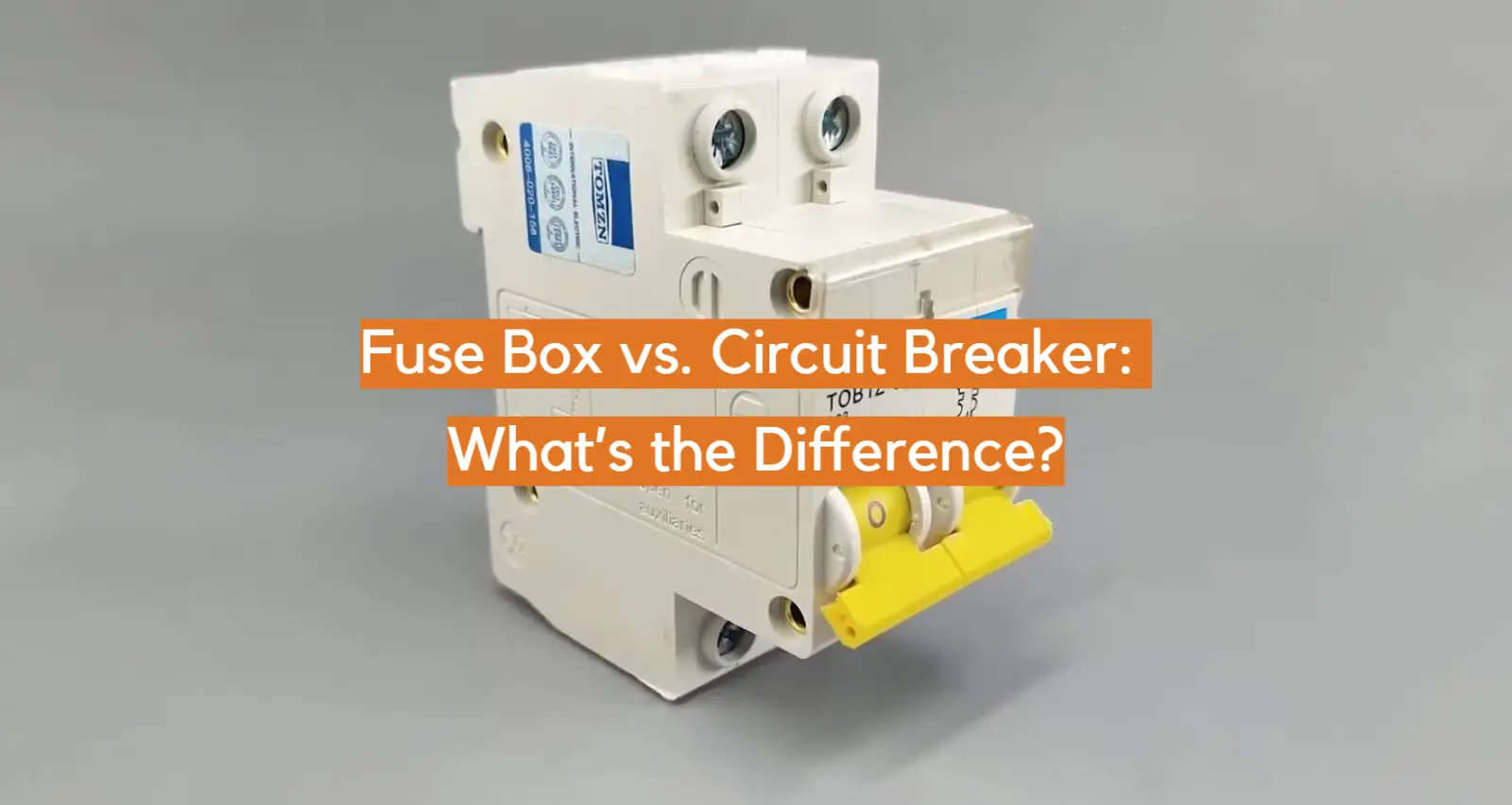





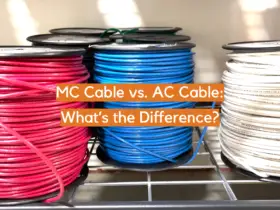


Leave a Reply